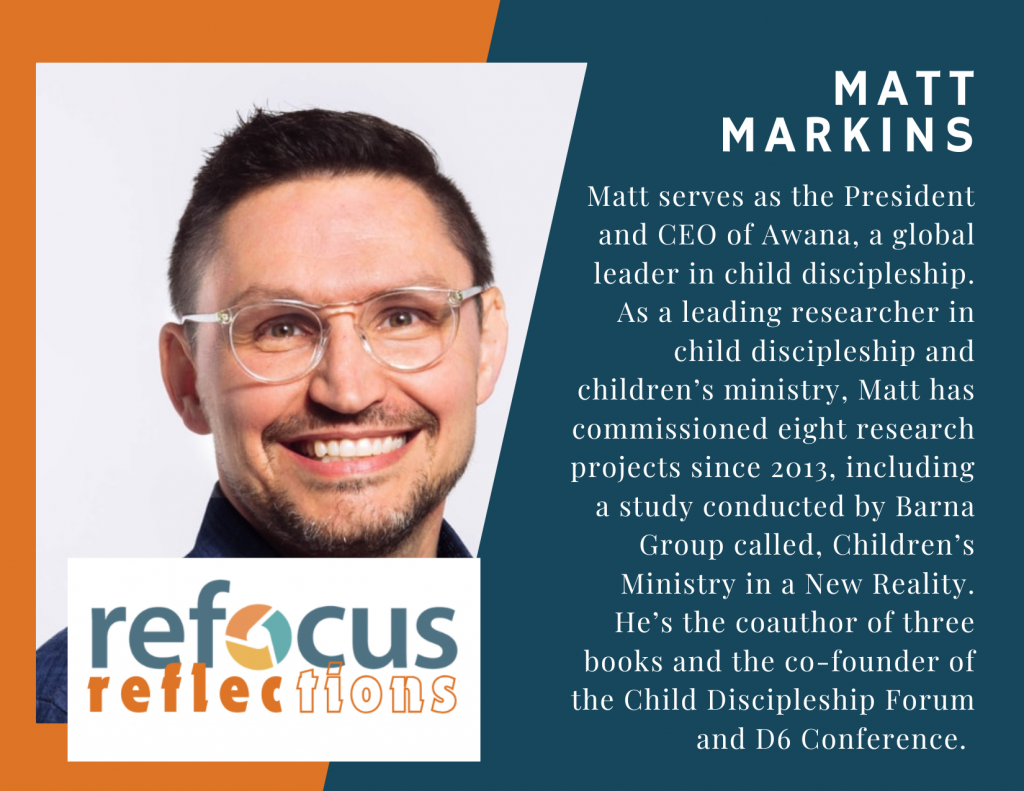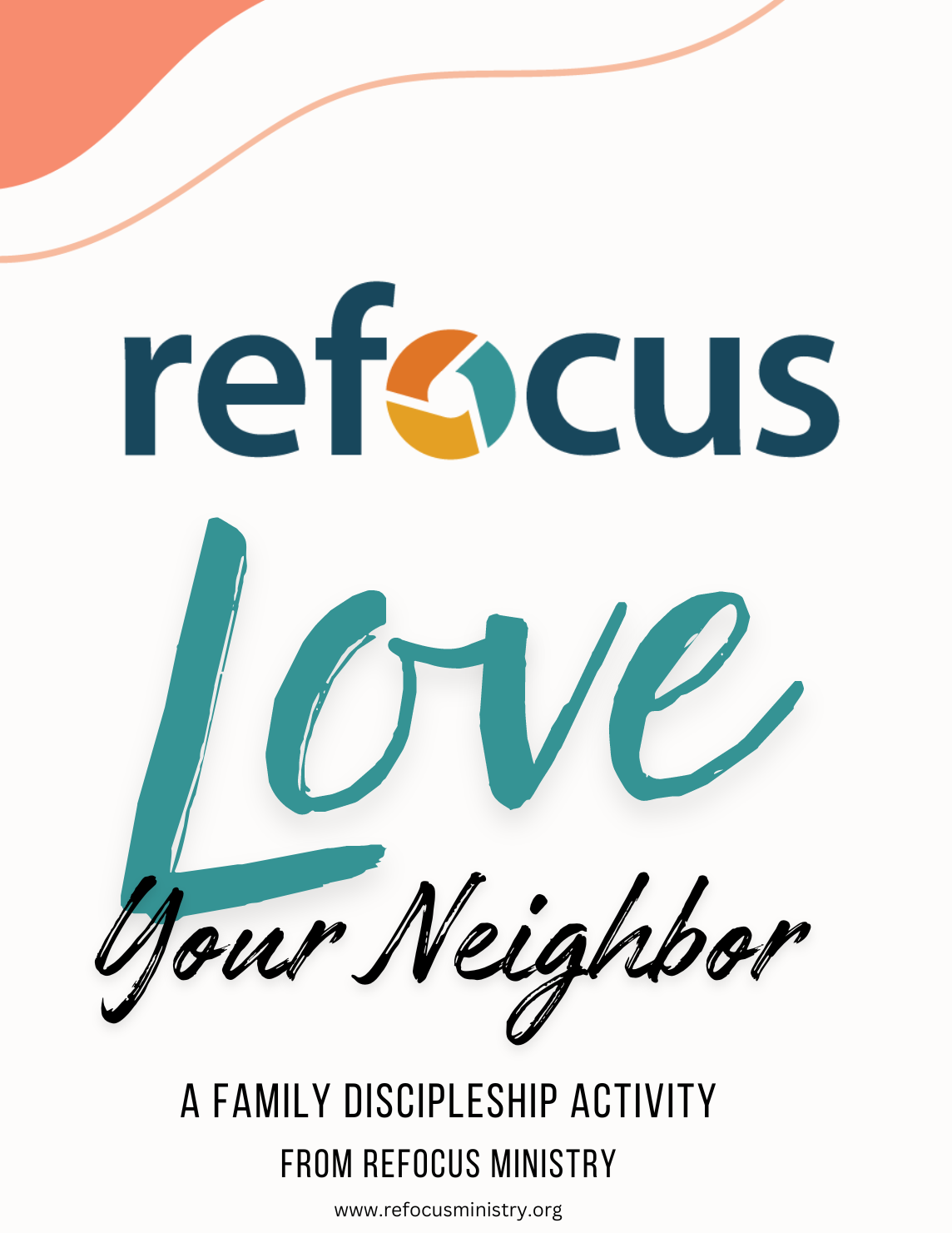“It’s the parent’s job to disciple their kids!”
“It’s the children’s pastor’s/youth pastor’s responsibility to teach kids about Jesus!”
“It’s the church’s role to be the context for discipleship.”
So often, the statements above are used in either/or arguments regarding Next Gen/Student/Children’s ministry. Books have been written comparing and contrasting the roles. Countless discussions have taken place online and in-person. Biblical, theological, and historical foundations have been presented. Developmental psychology, physiological milestones and cognitive abilities all consulted and taken into account.
What generally ends up happening is that people come to the same conclusion: All are needed but not all are equal.
Just like knobs on a sound board, people end up emphasizing one over another, which impacts how ministry is approached in their context.
- If parents are the primary place of discipleship, there’s an emphasis on family ministry, parent ministry, home ministry, and the like.
- If the primary place of discipleship is the church, Sunday school curriculum, youth programming, various age specific ministries and opportunities are emphasized and attendance and experience become markers of success.
- If the primary place of discipleship is the faith community (think people, not program or building), the focus is more intergenerational with multi-generational opportunities, less age-specific programming, and more out-of-the-building relationships and contexts with pastoral staff playing a supportive role.
It is likely that you’ve seen one or more of these scenarios played out as in churches you’ve attended, visited, or served in.
Each approach has its opportunities and challenges. Each one meets a need and each one can stimulate spiritual growth.
The concern lies when only one of these areas is utilized for generational discipleship.

It’s like trying to teach someone how to ride a bike but instead of giving them two wheels, a bike seat and handlebars, you only gave them one thing at a time. Yes, you could ride with only wheels but it’s gonna be a lot harder that if you had the whole bike.
I’m not a fan of the word “balance.” Achieving balance seems like an unreachable goal for most of us and it just leads us to a feeling of ongoing defeat and failure. But I am a fan of the idea of “both/and”; a ministry context that acknowledges the positive outcomes of each method and works to achieve a cohesive, unified approach to the work of discipleship.
Pause for a second and consider your own ministry context or church experience. Who carries the bulk of the discipleship load? Does reality match messaging?
- For instance, if a church messages that parents/caregivers at home are the primary means/place of discipleship, but only offer weekly age-specific programming with no support, nurture or equipping of parents, the reality is the church believes it is the central means by which discipleship happens.
- Or if a church states that it desires to be intergenerational and includes children in the worship service but never creates a space for children, youth, and parents to be connected with other members in meaningful ways like prayer partnership, shared learning experiences, or topical classes or studies (versus age specific), it is still placing the bulk of the discipleship load on the parent’s shoulders without sharing the responsibility.
The truth is, just like it is so often, is that we need all three working together in a cohesive manner in order for discipleship to take place.
The discipleship culture in churches needs to shift from “It’s so-and-so’s responsibility” to “It’s our responsibility.”
The children’s/youth pastor cannot succeed without the whole community of the church linking arms with parents and children in a community of discipleship.
The parents cannot succeed without the prayers, support, and tools needed to remain relevant and untiring in the work of discipleship at home.
And the church cannot succeed in developing networks of mentorship, relationship and connection between generations if programming is consistently segregated by age and life experience.
Dr. Richard Ross, author of Youth Ministry that Lasts a Lifetime, after a substantial time spent researching youth group graduates who remain in the faith and connected with church, offered this recommendation to churches that he calls “Ministry in Thirds.”
1. A third of time and resources to accelerating the spiritual impact in teenagers’ homes
2. A third immersing every teenager in the full life and ministry of the congregation
3. A third leading what churches traditionally have considered youth ministry, targeted to the youth group
According to Ross, “Balancing these three elements may well lead to much higher percentages of teenagers loving God, loving people, and making disciples for a lifetime.”
This is an ongoing conversation that needs to be had in churches. Unless we know where we stand, we can’t know where we need to be going. Take some time and consider your own ministry context or church experience? How might the resources listed above need to be reorganized in order to develop a holistic experience of lifelong generational discipleship? The outcome is worth whatever work it might take to engage all three discipleship arenas.
ReFocus Reflections: An Interview Series with Ministry Leaders & Biblical Scholars

Our unique interview series bridges the gap between scholars and practitioners by bringing them together around the ministry of generational discipleship with practical tips and theological insights that help us to connect generations in meaningful relationships for lifelong discipleship.
Our current ReFocus Reflections interview will be with Matt Markins, President & CEO of Awana, a global leader in child discipleship. In this clip, he discusses the importance of relational discipleship. You can access the full interview on on our Patreon Account.
Find our full series at our Patreon page.
Discipleship Resource: Love Your Neighbor

FREE Family Discipleship Resource
Love your neighbor. James calls this the “royal law of Scripture” and it is a great starting point for families to begin to share the love of Christ in their own neighborhood. Offer families this packet which includes a Neighborhood Map and 4 Action Steps that will help them to 1. Get to Know their neighbors, 2. Pray for their neighbors, 3. Welcome their neighbors, and 4. Serve their neighbors. Download your copy today, print as many as you need for your church community!
About the Founder of ReFocus Ministry
Christina Embree is the founder and director of ReFocus Ministry. She holds a masters in ministry focused on Children, Youth, and Family Ministry and a doctorate in spiritual formation with a focus on age segregation and intergenerational ministry.
In addition to coaching churches of multiple denominations and traditions all around the globe, Christina serves as the Minister of Generational Discipleship for the Great Lakes Conference of the Brethren in Christ and as Next Gen pastor at Open Door Church in Lexington, Kentucky.
She is widely recognized as a speaker and author in the areas of generational discipleship, intergenerational ministry, and family ministry. As the mother of three children, she is familiar with the challenges of faith at home and pastoral ministry. She along with her husband Luke share a love for the church, their community, and the global work of peace and restoration through Jesus.
Interested in having Christina visit your church, speak at your conference, or coach your team?
Christina speaks on a wide range of topics related to children, youth, and family ministry with a unique focus on connecting generations for discipleship within your church. Her personalized approach allows you to pinpoint the needs of your community and gain the insight that you are looking for. Whether this is a volunteer team training and pastoral staff meeting or a ministerial conference, her experience and knowledge will help you determine the next step forward in creating lifelong disciples.




